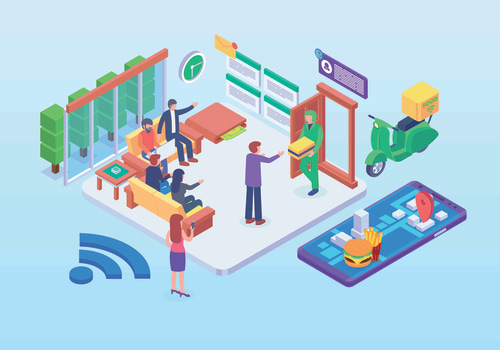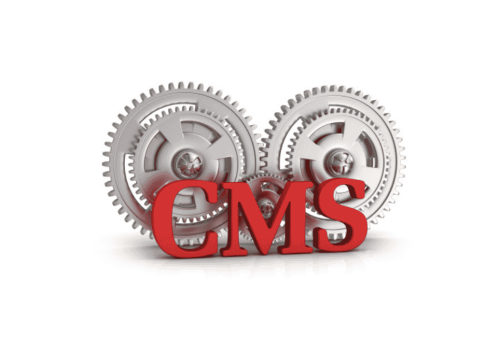In today's highly competitive business landscape, customer service is a key factor in success. A well-run help desk is essential for providing excellent customer support and responding quickly and efficiently to customer inquiries. However, the right help desk software can be difficult to find, and choosing one can be a daunting task. In this comprehensive overview, we'll take a look at the features of help desk software for customer service, how it works, and the different types of software available to help you make the best choice for your business.
What is Help Desk Software?
Help desk software is a type of customer service software designed to manage customer inquiries and support requests.It allows companies to streamline customer service processes, create support tickets, and provide customers with fast and efficient customer service. Help desk software provides businesses with a centralized platform for managing customer service operations, from tracking customer inquiries to managing customer support teams. It also helps businesses track customer service performance and measure customer satisfaction. Help desk software typically includes features such as ticketing systems, customer feedback tools, workflow automation, knowledge base management, and analytics.
It also provides access to customer data and resources such as chatbot integration, surveys, and reporting. All of these features help businesses better manage customer service operations and improve overall customer service.
Features of Help Desk Software
Help desk software offers a variety of features that help businesses manage their customer service operations. These features include:- Ticketing System: This feature allows businesses to create, assign, and track customer inquiries and support requests. It helps businesses streamline their customer service process and ensure customers get fast and efficient service.
- Customer Feedback Tools: This feature enables businesses to collect feedback from customers about their products and services.
It helps businesses measure customer satisfaction and identify areas of improvement.
- Workflow Automation: This feature automates the process of responding to customer inquiries and requests. It ensures that all customers receive timely responses without manual intervention.
- Knowledge Base Management: This feature provides access to information about products and services, as well as how-to guides and FAQs. It helps customers quickly find answers to their questions without needing to contact customer service.
- Analytics: This feature provides detailed insights into customer service operations. It helps businesses track customer service performance and identify areas of improvement.
Benefits of Help Desk Software
Help desk software provides businesses with several benefits, including:- Improved Customer Service: Help desk software helps businesses streamline their customer service process and ensure customers receive fast and efficient service.
It also helps businesses measure customer satisfaction and identify areas of improvement.
- Increased Productivity: Help desk software automates the process of responding to customer inquiries and requests, which saves time and increases productivity.
- Reduced Costs: Help desk software eliminates the need for manual intervention in responding to customer inquiries, which reduces costs associated with customer service.
How to Select the Right Help Desk Software
When selecting help desk software for your business, there are several factors to consider. These include:- Cost: Consider the cost of the help desk software and make sure it fits within your budget.
- Scalability: Make sure the help desk software is able to scale with your business as it grows.
- Features: Consider the features offered by the help desk software and make sure it offers all the features you need.
Examples of Popular Help Desk Software
There are many popular help desk software solutions available on the market today. Some of the most popular options include:- Zendesk: Zendesk is one of the most popular help desk solutions on the market. It offers a wide range of features, including ticketing systems, customer feedback tools, workflow automation, knowledge base management, analytics, and more.
- Freshdesk: Freshdesk is another popular help desk solution.
It offers a wide range of features, including ticketing systems, customer feedback tools, workflow automation, knowledge base management, analytics, and more.
Tips on Using Help Desk Software Effectively
To get the most out of your help desk software, here are some tips:- Set Up Automation Rules: Automating common tasks can save time and improve productivity. Set up automation rules for frequently asked questions or other recurring tasks so they can be handled automatically.
- Provide Self-Service Options: Provide customers with self-service options such as an FAQ page or a knowledge base so they can find answers to their questions without needing to contact customer service.
Summary and Takeaways
Help desk software is an invaluable tool for managing customer service inquiries and improving customer satisfaction. It provides businesses with a centralized platform for managing customer service operations, from tracking customer inquiries to managing customer support teams. When selecting help desk software for your business, consider factors such as cost, scalability, and features.There are many popular help desk solutions on the market today including Zendesk and Freshdesk. To get the most out of your help desk software, set up automation rules and provide self-service options such as an FAQ page or knowledge base. Help desk software is a powerful tool for managing customer service inquiries and increasing customer satisfaction. With the right help desk software in place, businesses can streamline their customer service operations and provide better support to their customers.
Be sure to consider all of the features and benefits when selecting help desk software for your business. When researching and selecting help desk software, it is important to make sure that the solution meets your business's needs and requirements. Factors such as pricing, ease of use, scalability, customer support, and integration capabilities should all be taken into consideration. Additionally, make sure that the software is secure and reliable so that customer data remains protected.







